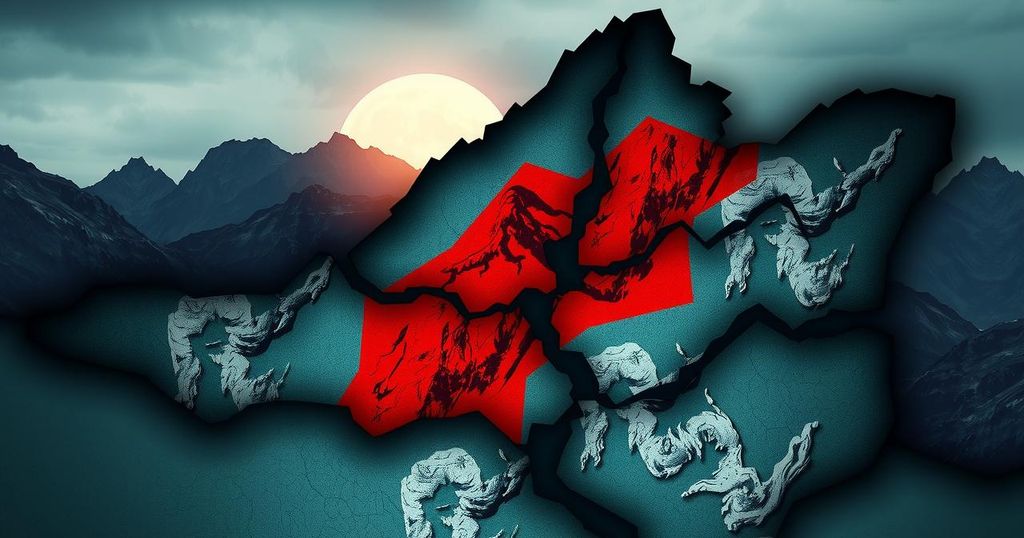The DRC’s Foreign Minister accused Rwanda of illegal occupation and efforts for regime change following the capture of Goma by Rwanda-backed M23 rebels. Rwanda’s spokesperson refuted these claims, asserting the troops are there to maintain border security. The SADC is convening to discuss the conflict and previously dispatched peacekeepers to the DRC, experiencing casualties in confrontations with M23. Wagner called for sanctions on Rwandan leaders and the reassessment of aid to Rwanda.
The Democratic Republic of Congo (DRC) has accused Rwanda of illegal occupation and efforts to alter the government regime, as stated by Foreign Minister Thérèse Kayikwamba Wagner in an interview with the BBC. This statement follows the recent takeover of the eastern Congolese city of Goma by Rwanda-supported M23 rebels. Wagner remarked that Rwanda has evaded accountability for international law violations for many years.
Rwanda’s government spokesperson, Yolande Makolo, rejected the allegations, asserting that Rwandan troops are present solely to prevent the conflict from expanding into Rwandan territory. She emphasized that Rwanda has no intentions of engaging in warfare or altering the political structure of the DRC.
The Southern African Development Community (SADC), a regional body comprising 16 member countries, has convened in Zimbabwe to assess the situation in the DRC. Peacekeeping forces, primarily from South Africa, have been deployed to the DRC to tackle armed factions including the M23, which has resulted in casualties among SADC troops during recent engagements.
President Paul Kagame of Rwanda has publicly challenged the legitimacy of the SADC peacekeepers, suggesting that they are inadequately serving as a peace enforcing body in the current crisis. Makolo added that Rwanda’s military presence is crucial for securing its borders, highlighting previous cross-border attacks that have resulted in fatalities.
Wagner has called for an end to foreign aid directed to Rwanda, urging that sanctions should be applied to those facilitating this armed conflict. Additionally, she advocated for the suspension of Rwandan troops from United Nations peacekeeping operations, drawing attention to the inconsistency in Rwanda’s portrayal as a peace-promoting nation while it engages in warfare within the Great Lakes region.
The ongoing tensions in the Democratic Republic of Congo stem from a history of conflict fueled by regional rivalries and armed groups, particularly the M23 rebels, who have received backing from Rwanda. The complex geopolitical landscape is further complicated by the involvement of various international and regional organizations, such as the SADC, which aims to restore stability in the mineral-rich yet conflict-ridden DRC. This situation mirrors long-standing grievances regarding foreign influence in the region and the repercussions of historical injustices stemming from the Rwandan Genocide and its aftermath.
In summary, the allegations of Rwandan occupation and interference in the DRC have escalated tensions between the two nations. While DRC officials insist on Rwanda’s culpability in destabilizing the region, Rwanda maintains efforts to safeguard its own borders. The situation necessitates a thorough examination by regional and international communities, especially regarding the efficacy of foreign aid and peacekeeping operations in addressing the root causes of the conflict in the region.
Original Source: www.bbc.com






